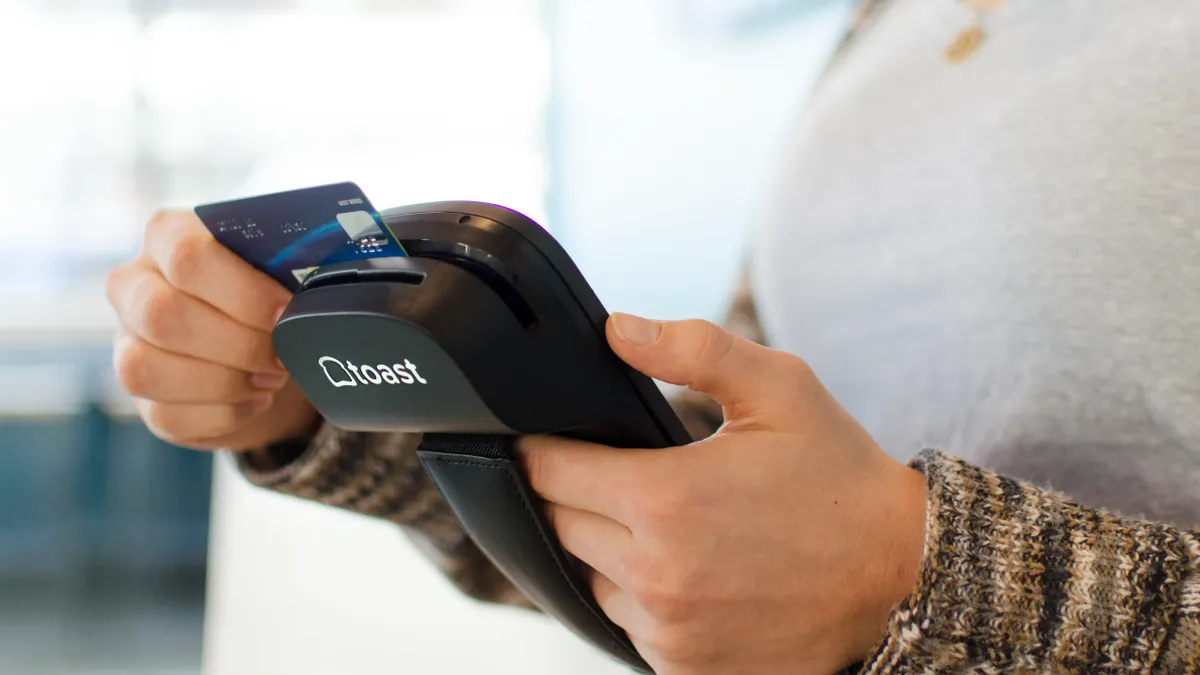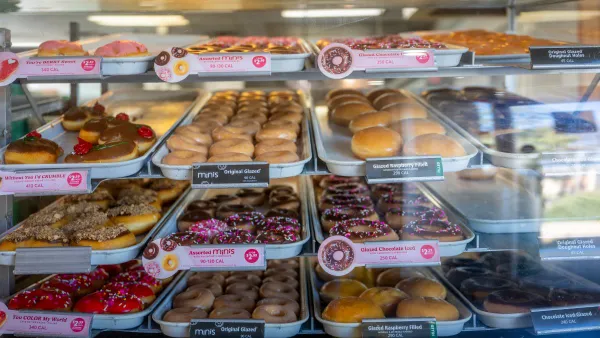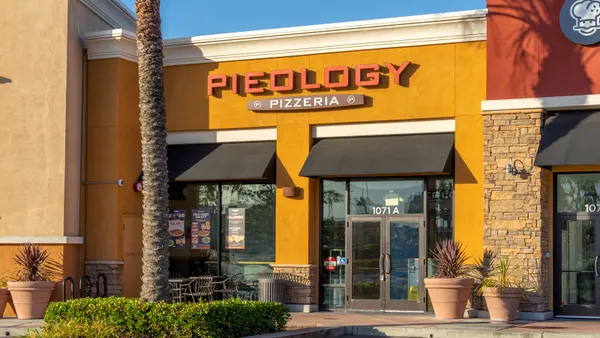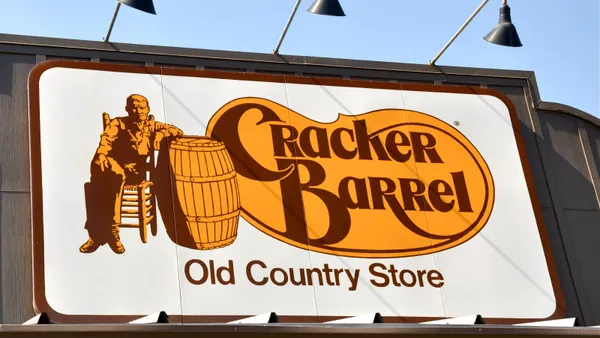Dive Brief:
- Toast begins trading on the New York Stock Exchange on Wednesday, offering over 21.7 million shares of Class A common stocks at a price per share of $40, according to a press release. The initial public offering, which is expected to close on Friday, could garner over $869 million at that share price.
- The company has also granted underwriters a 30-day option to purchase an additional 3.2 million shares at the IPO price, which would raise an additional $130 million. If sold, the additional shares would rack up a net total of $1 billion raised.
- Toast's IPO becomes one of the largest of the year in the restaurant technology space with a valuation of $20 billion.
Dive Insight:
Toast's debut comes just two days after the restaurant tech company updated its proposed share price offering to $34 to $36, up from a range of $30 to $33. The company said it would initially offer about 22 million shares, which would result in a maximum of $782 million raised. When Toast first filed to become public, it originally anticipated an offering of $100 million.
During the company's roadshow, investors were very receptive to Toast's offerings, Steve Fredette, Toast president and co-founder, said.
"Restaurants are historically underserved by technology," Fredette said. "I think the investor community has just woken up to that."
While Toast was hit particularly hard during the pandemic last year — it laid off and furloughed half its staff — its IPO reflects the company's resilience. The company quickly transitioned to provide more online ordering options to restaurants as they pivoted to off-premise and contactless ordering options. During the pandemic, the firm launched Toast Now, a digital-only platform that allows restaurants to quickly activate online ordering, delivery, gift card and email marketing capabilities, the company said in its S-1 filing. It also offered a suite of contactless order and pay solutions, including QR codes in April.
Toast had been working on order and pay and digital ordering prior to the pandemic, but the COVID-19 crisis helped accelerate a lot of technology, Fredette said.
"The success that we've been able to have throughout the recovery is something that we've been building for a decade. So that really does make a big difference in our ability to understand what the restaurant industry needs," Fredette said.
The pandemic also accelerated some changes in Toast's business that have made it more flexible more scalable, he said. There has been a huge shift recently toward self-install and remote install, which was an easier model for customers as well as a more efficient model for Toast as a business, Fredette said.
"We took a hit with everybody else and then we went right back into growth mode," Fredette said. "What we saw is restaurants continue to be much more resilient than anybody, even ourselves, might have thought and bounced back."
This shift helped the company regain momentum. It grew to service 48,000 restaurant locations as of June 30, 2021, compared to servicing over 33,000 restaurant locations as of June 30, 2020. Its momentum is likely to continue, especially as Toast expects restaurants to increase technology spending to $55 billion by 2024 compared to $25 billion spent in 2019, it said in its S-1 filing.
"To bring the end-to-end platform that we've built for restaurants to the restaurant community, that's going to take more investment, and we think there's more opportunity to add to the product platform," Fredette said, adding that continued investment can help it bulk up its point-of-sales operations, digital ordering, delivery, marketing, employee engagement and financial technology.
"There's a big opportunity to continue to work to help our customers to thrive," Fredette said.
Other restaurant companies that offer online ordering capabilities have made strong showings with investors in both the public and private markets. Olo debuted on the public markets earlier this year, garnering an IPO of over $450 million. Acelerate, a host kitchen and software startup, secured over $14 million in funding from investors in July. Local Kitchens, a digital food hall provider, received $25 million in funding in June. Goldbelly gained $100 million from investors in May to help scale its technology and accelerate onboarding of more chefs and restaurants to its food delivery platform. Pizza delivery marketplace Slice received $40 million in funding with plans to expand its network and products.










